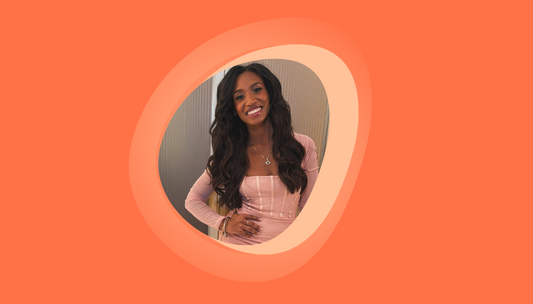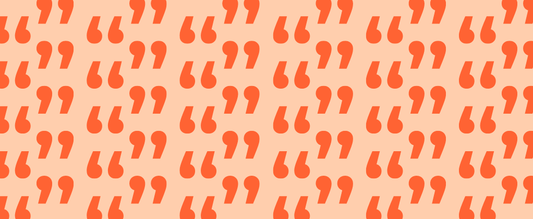Highs and Lows of ADHD and Social Media Content Creation
Read time 3 mins
6th May 2022. The day my life changed forever.
On this monumental day, I finally received my official ADHD diagnosis.
Circa 2018, I started sharing mental health content. I was dealing with severe anxiety and depression, which I now understand was the result of my nervous system going so many years without proper support, care, or guidance.
Shortly after receiving my diagnosis, I began posting about this as well.
I talked about my past issues, things I learned along the way, how I was adapting to life with the new knowledge of how my brain differed from most people. As well as information, tips, tricks, and the like.
I aimed to build connections, keep learning, find my way forward.
Little did I know this decision would completely alter the trajectory of my life.
Shall we discuss the lows first? That way, we can finish on a high note.
ADHD remains wildly misunderstood by many worldwide. Many feel it is simply an excuse for laziness, a tactic to not do certain things, or a get-out clause for people who “can’t handle real life”.
Believe me, people are not reserved about lashing out with comments like this on social media. If anything, the anonymity grants people free reign to tear others down. As my follower count grew, so did the number of hateful, ignorant comments and DMs. I’ve been called toxic, a narcissist, a con artist, a liar, and various obscenities not worth repeating.I struggle immensely with rejection and criticism at times. Receiving negative or hateful comments can be triggering, leading to spirals of anxiety, doubt, and negative self-talk.
You would assume having thousands of people to talk to daily would keep a person company. But some of my loneliest times arrived after gaining an audience. I haven’t spoken to many friends about my diagnosis, hardly any of my family either. When much of your connection is with words on a screen from people you’ve never met, one begins to feel isolated—craving real connection.
We can all get stuck doom-scrolling. The constant supply of dopamine is tough to pull away from. When I was trying to keep up with trends, reply to people’s comments and DMs, and navigate an ever-changing algorithm? My screen time skyrocketed which only added to my difficulties with rejection. Why isn’t my video doing well? Do people not like me? Is my content not good enough? Am I not good enough?
I’ve had to take several breaks from content creation as it becomes overwhelming to keep up with the task and deal with the issues I’ve just discussed. 
Let’s dive into the positives of this journey!
After spending your life feeling like an outsider, misunderstood by those around you, battling constant feelings of shame, guilt, and inadequacy, finding people just like you is an incredibly validating experience.
I made many neurodivergent friends, some of whom I now consider my closest confidants. For the first time in my life, I have felt welcomed and understood – no longer am I the overly sensitive, flaky daydreamer. I’m an ADHDer, and I’m not alone.
Through finding this acceptance and validation, slowly but surely, I began to unmask. As I delved deeper inward, gaining a greater understanding of where I had betrayed who I really was, a new script was being written. A script in which my needs were just as important as the next person. Which I was living with symptoms of a neurodevelopmental condition, not simply a bumbling mass of character flaws. A script where I recognised just how little I had been truly supported throughout my life.
There were difficult periods. Times where I had no idea who I was or what I wanted and needed from this life. Someone told me after my diagnosis, “It’s like learning to be human again" which may be one of the most accurate statements I’ve ever heard.
I had to unlearn almost everything I’d been told while moulding myself into who I truly am. I am continuously learning from those further down the road than myself: the beauty of shared experience and the wonder of social media.
While this has been a complicated process, I can confidently say I’m better for it.
I’m more self-assured. I trust my intuition. Boundary setting no longer feels like conflict. Stimming has become an accepted part of my daily life. No longer do I over-extend myself to please others. I feel competent, resilient, and self-aware.
And the juicy cherry on top...
I’m now working full-time as a neurodivergent coach, speaker, and educator. Through my self-directed learning and my persistence in sharing this with any and all who needed it, somebody noticed me. They recognised my value and invited me into their world. A world which combines my passion, my strengths, and my dreams.
Social media undoubtedly has many flaws, from misinformation to hateful trolls. But without social media, many may never have had the penny-drop moment of wondering, “Do I have ADHD?”.
If I hadn’t had that penny drop moment, I don’t know if I would be here today.
So, while it may be imperfect, social media has the power to connect people, to improve our understanding, and to save lives. That’s something I’m incredibly grateful to be a part of.
About the author
Chris Hood is a neurodivergent coach, speaker, and educator. After years spent helping people in the NHS as a physio, he decided to start a new career to empower people with ADHD to navigate daily life more effectively. With a focus on working harmoniously with the nervous system rather than against it, Chris collaborates with clients to nurture their unique talents, enabling them to thrive in the workplace and beyond.

Christmas, alone (in my head… and kind of loving it)
Read time 4 mins

Healing your inner critic
Read time 6 mins

From Struggle to Support: The Journey That Inspired get dopa
Read time 5 mins






